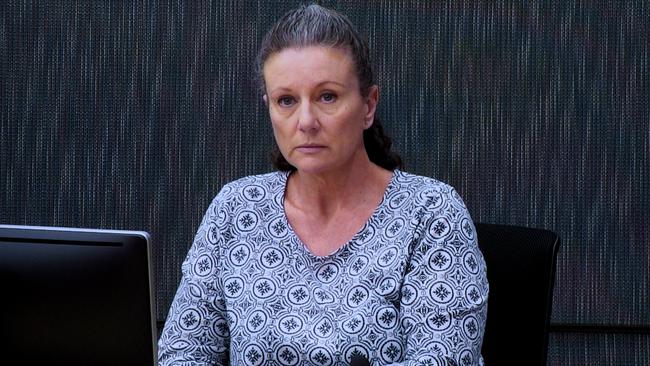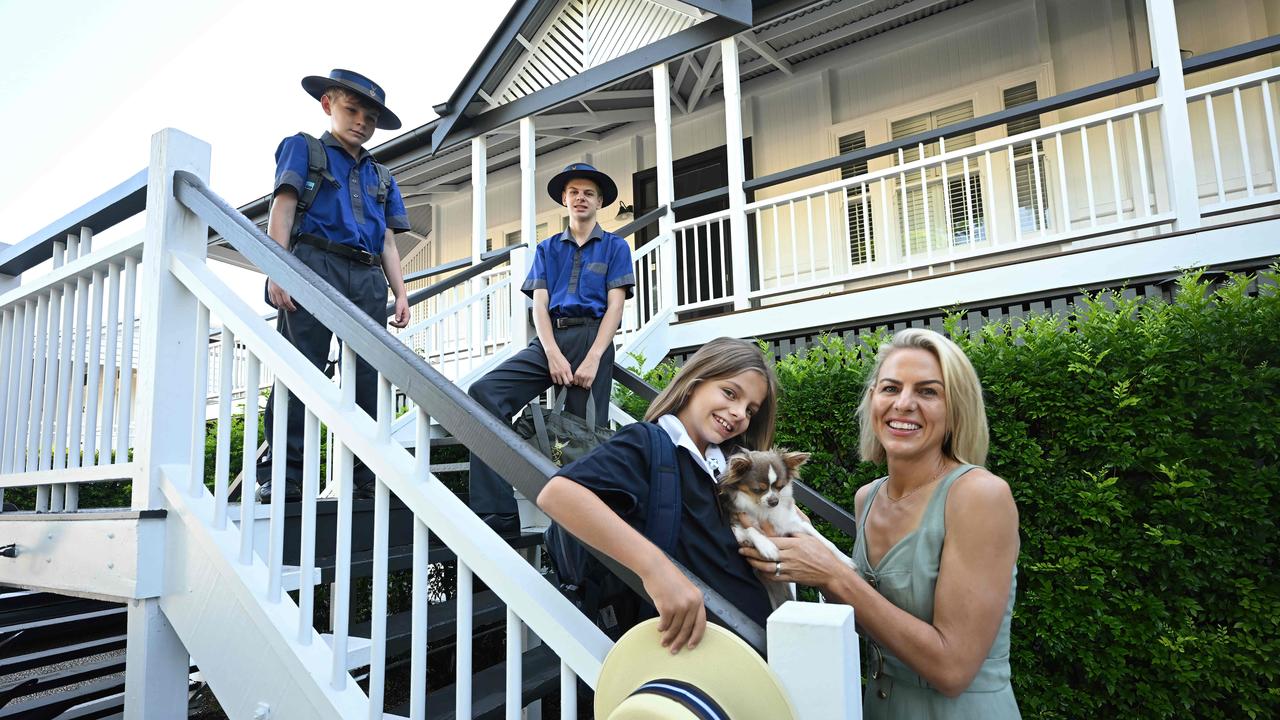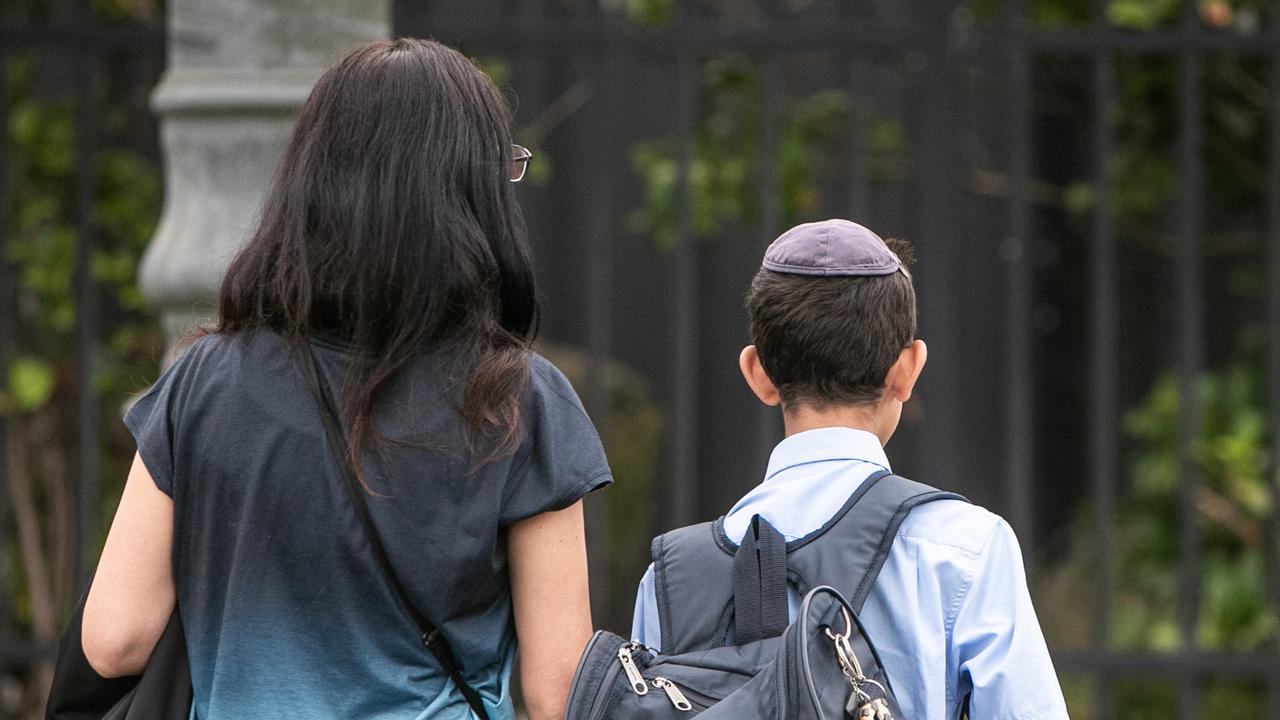Kathleen Folbigg freedom looks at hand as DPP concedes doubt
Convicted baby-killer Kathleen Folbigg looks likely to finally be freed after the NSW DPP accepted that fresh evidence casts reasonable doubt on her conviction.

After three criminal trials, two judicial inquiries and 20 years in prison, convicted baby-killer Kathleen Folbigg looks likely to be granted freedom.
Final submissions to an inquiry investigating whether Folbigg killed her four young children began on Monday, with the NSW Director of Public Prosecutions accepting that fresh evidence presented during the two-week hearing had cast reasonable doubt on the convictions.
In first signs that Folbigg could be exonerated, counsel assisting the inquiry, Sophie Callan SC, said the NSW DPP had accepted in written submissions to the inquiry that “on the evidence now available it is open to the inquiry to conclude there is reasonable doubt about Ms Folbigg’s guilt”.
Folbigg, 55, is serving a minimum 25-year prison sentence after being found guilty of the murder of Patrick (eight months), Laura (10 months) and Sarah (19 months), and the manslaughter of Caleb (three weeks).
Physicians, psychiatrists and researchers have fronted the latest inquiry into whether she killed the children, after new scientific evidence emerged in early 2022 that they may have died of natural causes.
This is the second inquiry into Folbigg’s guilty conviction.
In 2019, NSW District Court chief judge Reginald Blanch QC found evidence presented at an inquiry reinforced she was responsible for the deaths of her children.
Folbigg took the matter to the Court of Criminal Appeal to have Judge Blanch’s findings overturned but she was ultimately unsuccessful.
On Monday, the new inquiry heard the NSW DPP had been convinced the new pathological, neurological and genetic evidence relating to the children’s various health conditions cast reasonable doubt over Folbigg’s guilt, and indicated the children may have died of natural causes.

Ms Callan said the expert evidence had proven that a genetic variant could be a possible cause of Sarah and Laura’s sudden deaths. Further, she said myocarditis, or inflammation of the heart muscle, was “a reasonably possible cause” of Laura’s death.
In relation to Patrick, “there is persuasive expert evidence that as a matter of reasonable possibility, an underlying neuro-genetic disorder … was the cause of Patrick’s apparent life threatening event and subsequent sudden death”.
With doubt cast over the cause of Sarah, Laura and Patrick’s deaths, she concluded the new evidence “gives rise to doubt as to Miss Folbigg’s guilt in relation to the death of her first baby, Caleb Folbigg.”
If former NSW chief justice Tom Bathurst, who has presided over the inquiry, finds there is reasonable doubt Folbigg killed her children, he will recommend to Governor Margaret Beazley that she exercise her power to grant a free pardon to Folbigg in relation to her convictions.
If a pardon is granted, Folbigg can apply to the Court of Criminal Appeal for her convictions to be quashed.
The crown’s case in 2003 was circumstantial, with autopsies failing to establish exactly what had caused “the cessation of breathing’’ in each child.
Folbigg’s diaries, written over the decade that the children died, were a compelling piece of evidence that led to her conviction.
In one entry dated February 17, 1997, just after Laura was born, she wrote: “One day it will leave. The others did, but this one’s not going in the same fashion. This time I’m prepared and know what signals to watch out for in myself.” In another entry she said stress made her do “terrible things”.
Ms Callan said the NSW DPP believed the new scientific evidence “diminished entirely the probative force of the so-called virtual admissions in Ms Folbigg’s journals”.
“The cognitions and themes demonstrated by Ms Folbigg in her diaries, including guilt, shame and responsibility for her children’s deaths, and feeling like a terrible and cruel mother, are consistent with the expected and documented thought processes of a person experiencing maternal grief and depressive symptoms,” she said.
“In our submission it is open to Your Honour to conclude that having regard to this body of evidence before the inquiry, the entries in Ms Folbigg’s diaries and journals which express responsibility or guilt are not reliable as admission by her of harming her children.”
Ms Callan also asserted that suggestions Folbigg suffered from a personality disorder that may have caused her to kill her children were unsubstantiated, and experts assisting the inquiry found she “did not satisfy the criteria for a borderline antisocial or other personality disorder”.
Her comments were at odds with the children’s father, Craig Folbigg, who submitted he believed insufficient attention had been paid to childhood trauma Folbigg had endured after her father killed her mother.
Mr Folbigg’s representative, former NSW crime commissioner Peter Hastings KC, told Monday’s hearing the inquiry had not properly investigated whether Folbigg shared the same violent tendencies as her father.
“One only had to watch a game of football yesterday on TV and see Collingwood play Essendon and the man of the match was a young man who’s the son of a Collingwood champion,” he said.
Judge Bathurst jumped in: “I am the son of a three times Australian tennis champion, and I can assure you I didn’t take after them.”
“But it just seems to me, Your Honour, it’s fundamental,” Mr Hastings rebutted. “Like everyone says, like father like son. It’s just a fact of life.”
However, Judge Bathurst dismissed his submission saying: “I regard this as scandalous. I direct you not to proceed. I understand the submission you’re making, I’ve already indicated why I’m going to reject it. You’re only making it worse.”
Counsel representing Folbigg Robert Cavanagh also fronted the inquiry on Monday, saying she was simply a mother who “did her best to protect her children, and loved each one of them”.
Dr Cavanagh said Folbigg was a victim of Meadows Law in the 2003 trial – a now-discredited formulation created by professor Roy Meadow in 1989 stating: “One sudden infant death is a tragedy, two is suspicious and three is murder until proved otherwise.”
“The presumption that multiple apparently unexplained deaths of infants in one family necessarily pointed to unlawful homicide underpinned the 2003 prosecution,” he said. “This has now been discredited.”
The inquiry continues on Thursday.







